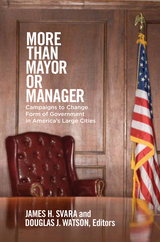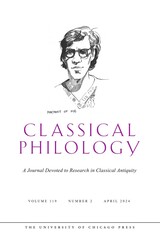
Invisible Asians offers an engaging account that makes an important contribution to our understanding of race in America, and illuminates issues of power and identity in a globalized world.


Different forms of city government are in widespread use across the United States. The two most common structures are the mayor-council form and the council-manager form. In many large U.S. cities, there have been passionate movements to change the structure of city governments and equally intense efforts to defend an existing structure. Charter change (or preservation) is supported to solve problems such as legislative gridlock, corruption, weak executive leadership, short-range policies, or ineffective delivery of services. Some of these cities changed their form of government through referendum while other cities chose to retain the form in use.
More than Mayor or Manager offers in-depth case studies of fourteen large U.S. cities that have considered changing their form of government over the past two decades: St. Petersburg, Florida; Spokane, Washington; Hartford, Connecticut; Richmond, Virginia; San Diego, California; Oakland, California; Kansas City, Missouri; Grand Rapids, Michigan; Dallas, Texas; Cincinnati, Ohio; El Paso, Texas; Topeka, Kansas; St. Louis, Missouri; and Portland, Oregon. The case studies shed light on what these constitutional contests teach us about different forms of government—the causes that support movements for change, what the advocates of change promised, what is at stake for the nature of elected and professional leadership and the relationship between leaders, and why some referendums succeeded while others failed. This insightful volume will be of special interest to leaders and interest groups currently considering or facing efforts to change the form of government as well as scholars in the field of urban studies.
READERS
Browse our collection.
PUBLISHERS
See BiblioVault's publisher services.
STUDENT SERVICES
Files for college accessibility offices.
UChicago Accessibility Resources
home | accessibility | search | about | contact us
BiblioVault ® 2001 - 2024
The University of Chicago Press









